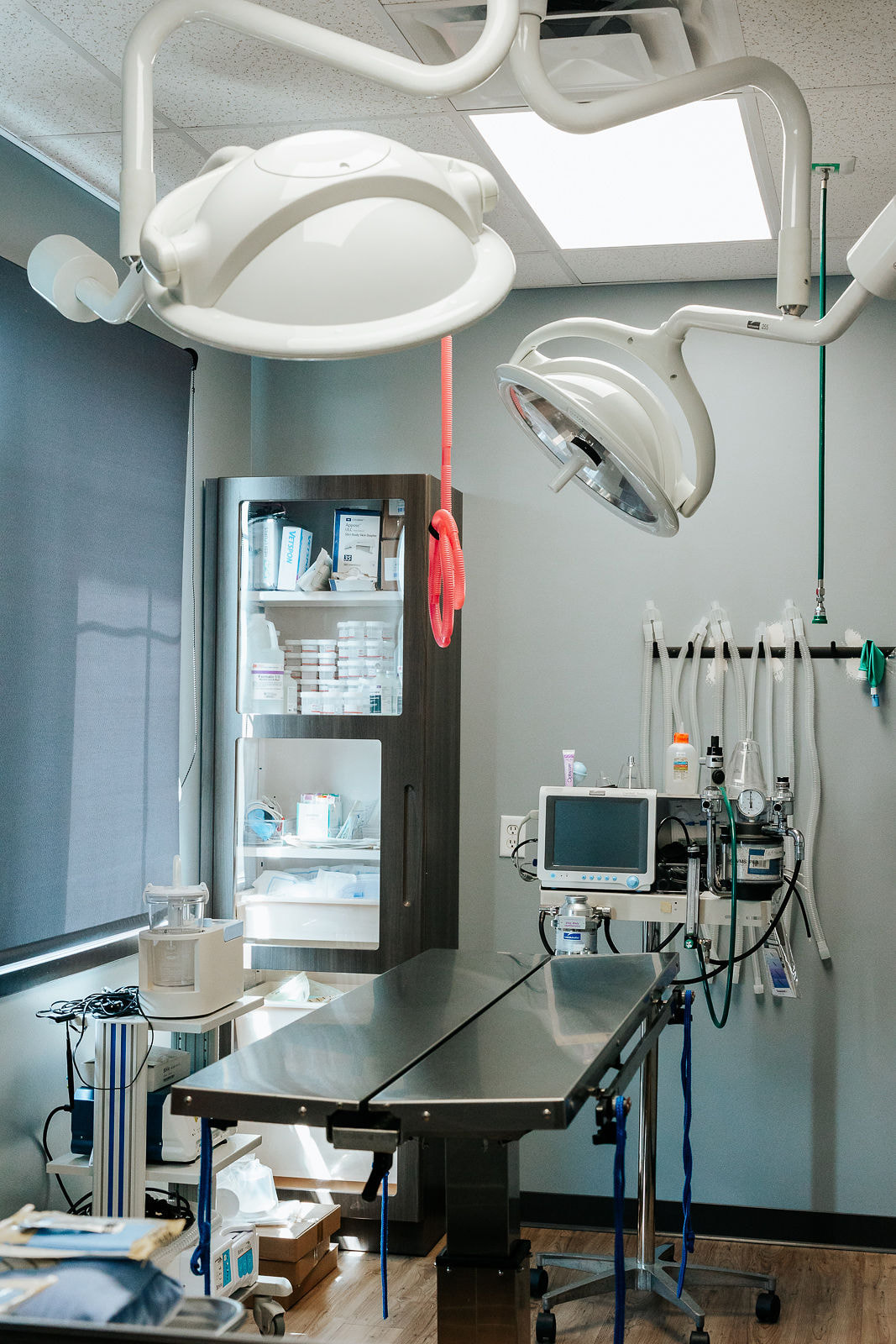Surgery
Hearing your pet needs surgery can be frightening. At Cedar Hill, our veterinarians maintain the highest standards of care for all surgical procedures. We use inhalation (gas) anesthesia, one of the safest available anesthetics. Using the most current technology, your pet’s vital signs are monitored by our Registered Veterinary Technicians, who will remain with your pet throughout the procedure and recovery. Weather your pet needs a simple spay or neuter, or a complex soft-tissue surgery, our team has you covered.Surgical Procedures offered include, but are not limited to:
Anesthetic Procedures and Risks:
We use a combination of pre-anesthetic medications/injectable and/or inhalant anesthetics to achieve optimum levels of anesthesia that are safe for your pet. For most procedures, your pet is anesthetized and then intubated (insertion of a tube into the trachea or wind pipe). This will ensure that your pet is able to receive oxygen and inhalant anesthesia at all times and helps to prevent aspiration of any fluids into the lungs. For procedures that require minimum sedation, an injectable anesthetic is given that produces a good plane of sedation with quick recovery. Anesthesia is maintained with a gas anesthetic, isoflurane, which is very safe and is not metabolized by the body. This allows us to have more control over anesthetic depth and it is less irritating to the airways. Another advantage to Isoflurane is a quick induction using a mask verses using injectable anesthetics that require metabolism from the body. Monitoring and Pain Management: Monitoring of patients during anesthesia is done in two ways. First, a Licensed Veterinary Technician is with your pet continuously from beginning of anesthesia to recovery. Second, we have a computerized monitor that records heart rate, pulse rate, oxygen levels, respiration, ECG and core temperature. Our clinic strongly believes in compassionate, quality, medical care for our patients. As a result, all surgery patients will receive pain management before, during and after surgery. Additionally, pain medication may be prescribed to go home. Additional information will be given at discharge. Our goal is to reduce any discomfort experienced and aid in a quicker recovery for your pet. |
Intravenous Catheterization and Fluids:
Your pet will have an intravenous catheter placed before anesthesia. An IV catheter provides a direct route to the bloodstream. The use of intravenous fluids during surgery facilitates adequate cardiovascular performance, reduces stress on the heart, assists in maintaining your animal’s temperature, hydration, blood pressure, and reduces the time it takes for your animal to fully recovery from anesthesia. Microchipping: We recommend every pet is microchipped. Microchipping your pet allows any clinic or shelter to scan your pet should they become lost, to have access to your contact information so your pet can be safely returned. We offer the Fi Nano Microchip, and you will have the option to select us to microchip your pet during their procedure. The night before your pets procedure:Dog/Cat:
|

